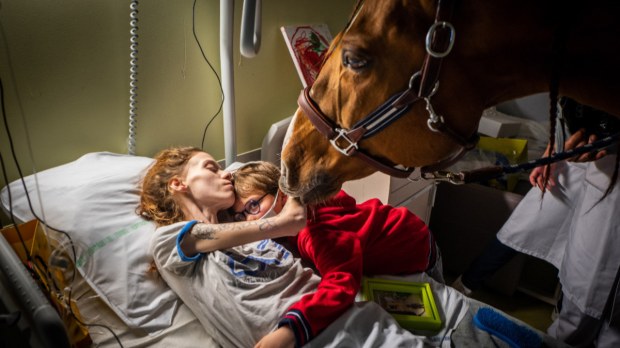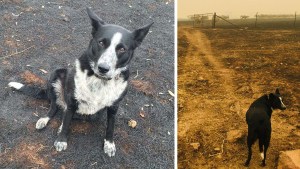Lenten Campaign 2025
This content is free of charge, as are all our articles.
Support us with a donation that is tax-deductible and enable us to continue to reach millions of readers.
Peyo (pronounced “peh-YOH”) is a 14-year-old horse that his owner, Hassen Bouchakour, used in dressage shows. After shows, the horse would seek out contact with specific individuals in the crowd. It was thanks to this that Bouchakour discovered something surprising: Peyo has the ability to detect if people are suffering from cancer or are otherwise weak or dying.
His extraordinary relationship with the sick has been covered in many media articles in recent years, including The Guardian and Nspirement. This year, moreover, Peyo is in the news for being the protagonist of an exceptional photo.
Peyo’s amazing ability not only serves to diagnose diseases that have not yet shown their face. It’s also been proven that his presence can help to improve the quality of life of patients in a hospital. In some cases, his visits have even made it possible to reduce the patients’ medication.
Bedside hospital visits
Peyo is in France, and he’s already known as “Dr. Peyo.” Specifically, he “works” at a hospital in Calais and four other hospitals in Dijon, Le Havre, Nice and Antibes.
The staff is familiar with the horse; he enters the building with Bouchakour and passes through a sanitary protocol, then gets on the elevator and decides which room to visit. Peyo is trained in such a way that he never soils the hospital floor (he indicates with his movements when he needs to go out) and he’s thoroughly cleaned and disinfected before and after each hospital visit.
He’s close and affectionate with the sick, nuzzling up to them and sometimes licking them. “He’s a horse that behaves differently with people in delicate condition,” Bouchakour explains.
Peyo in the World Press Photo awards
An image of Peyo taken by photographer Jeremy Lempin and titled “Doctor Peyo and Mister Hassen” was nominated for this year’s World Press Photo Story of the Year award in the Contemporary Issues category. It’s the photo at the top of this article.
The photograph shows Peyo with Marion, a young mother with metastatic cancer, and her 7-year-old son Ethan.
Patients improve with his presence
Equine therapy has been in use for many years. But Peyo’s gift for detecting illnesses and his ability to be part of the treatment of hospitalized patients have led to his being scientifically studied by experts in palliative care, geriatrics and pediatrics. In Calais, he participates in assisted therapy sessions at the Séléne Palliative Care Unit.
A visit from Peyo is a high point in the day-to-day life of patients at these French hospitals, while opening up hopeful horizons for medicine.
For the sick, Peyo provides companionship, reduces the feeling of loneliness, and relieves mental and physical pain. He also has ended up comforting the families of some patients, andThe Guardian reports one case where Peyo and Bouchakour were asked to attend the funeral of a patient who had been particularly attached to his equine therapist.



